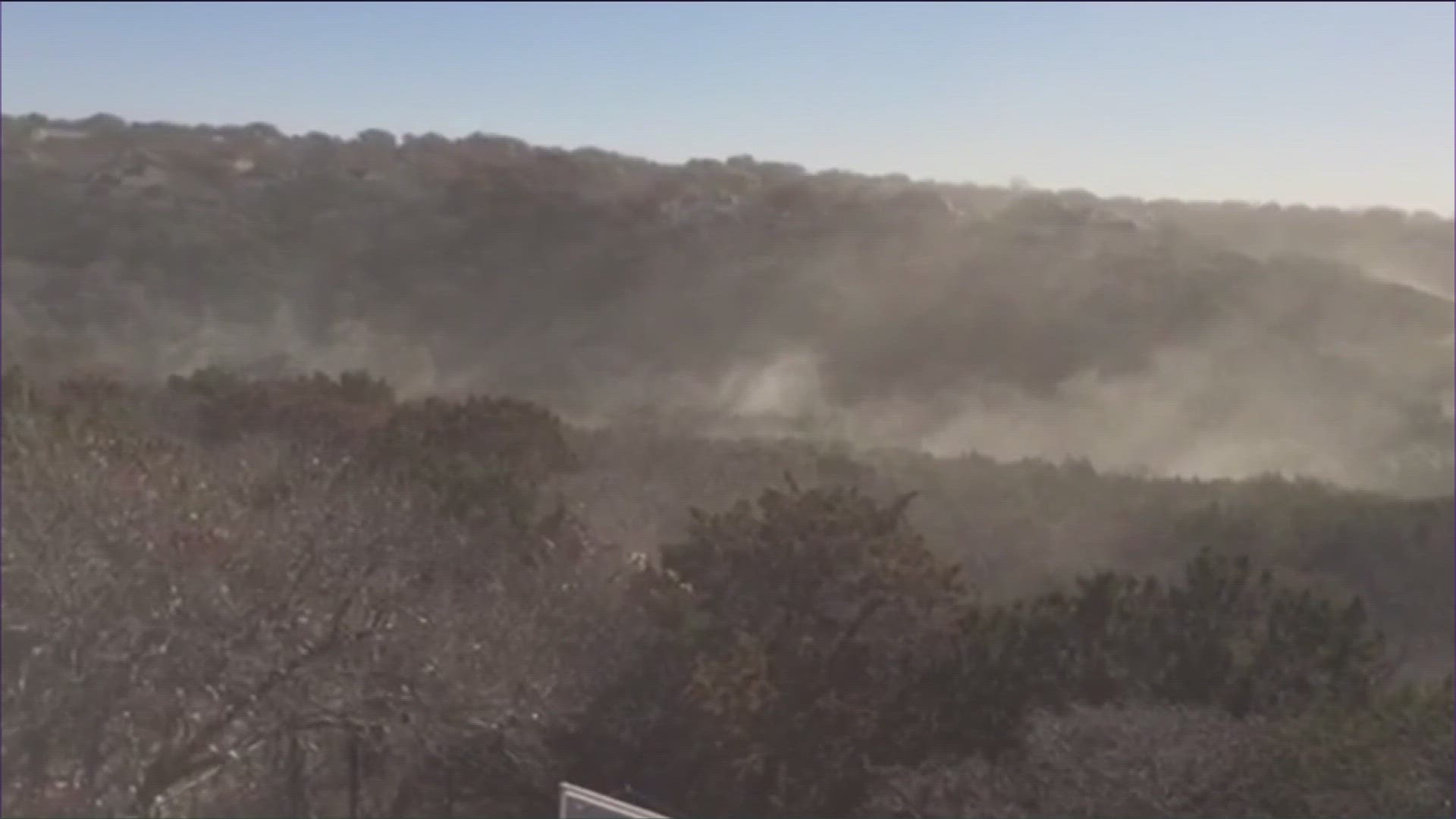AUSTIN, Texas —
Pollen from mountain cedar is on its way to Central Texas to cause problems for allergy sufferers. KVUE spoke with a local allergist to learn more about what causes "cedar fever" and what steps you can take to prevent the symptoms.
Cedar fever – the name people give to their reaction to an increase of cedar pollen in the air – happens around this time of year, typically around when we see our first freeze. And this year, we may see a spike earlier than normal.
Dr. Scott Oberhoff with Austin Diagnostic Clinic said based on our weather pattern, this season will be heavy on the cedar pollen. He said the best way to be proactive is to avoid being out on cold, windy days with high pollen and to take allergy medication consistently and early.
"Oftentimes, your symptoms will be much better controlled than if you wait until symptoms start to be problematic," Oberhoff said. "If you wait until then ... you're trying to play catch up and, oftentimes, it cannot be as effective as if you had started before the season."
He also said a good rule of thumb is to start taking your allergy medicine by Thanksgiving. However, this week has been cold, so we could experience the effects earlier.
"There likely will be some spikes in the cedar. And so, these are kind of early warning signs that this is coming. So certainly, we're a couple of weeks earlier than Thanksgiving this year and there is typically not a whole lot of harm. It's starting them earlier, as opposed to later," Oberhoff said.
People experience stuffy noses, chest congestion and aches, which are a lot of the same symptoms as a cold. Oberhoff said one telltale sign that it's allergies and not a cold is if you're feeling itchy. Itchy eyes are more common with allergies.
Your reaction to allergy medicine will also paint a better picture of what you're dealing with because cold symptoms don't typically respond to allergy medicine. So, if allergy medicine makes you feel better, that's probably what you have.
And although it's called "cedar fever," you usually don't get a fever from allergies. A fever could mean a cold or something else.

